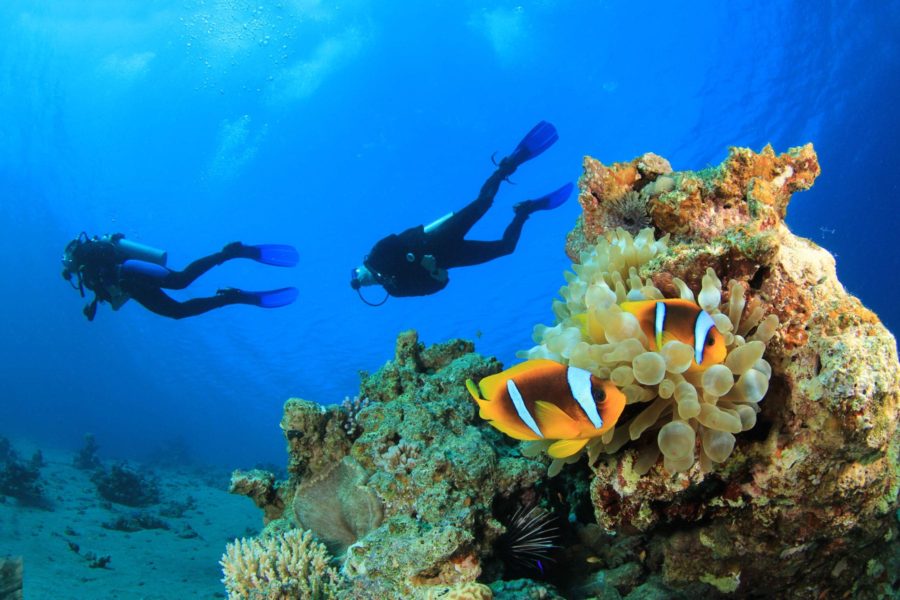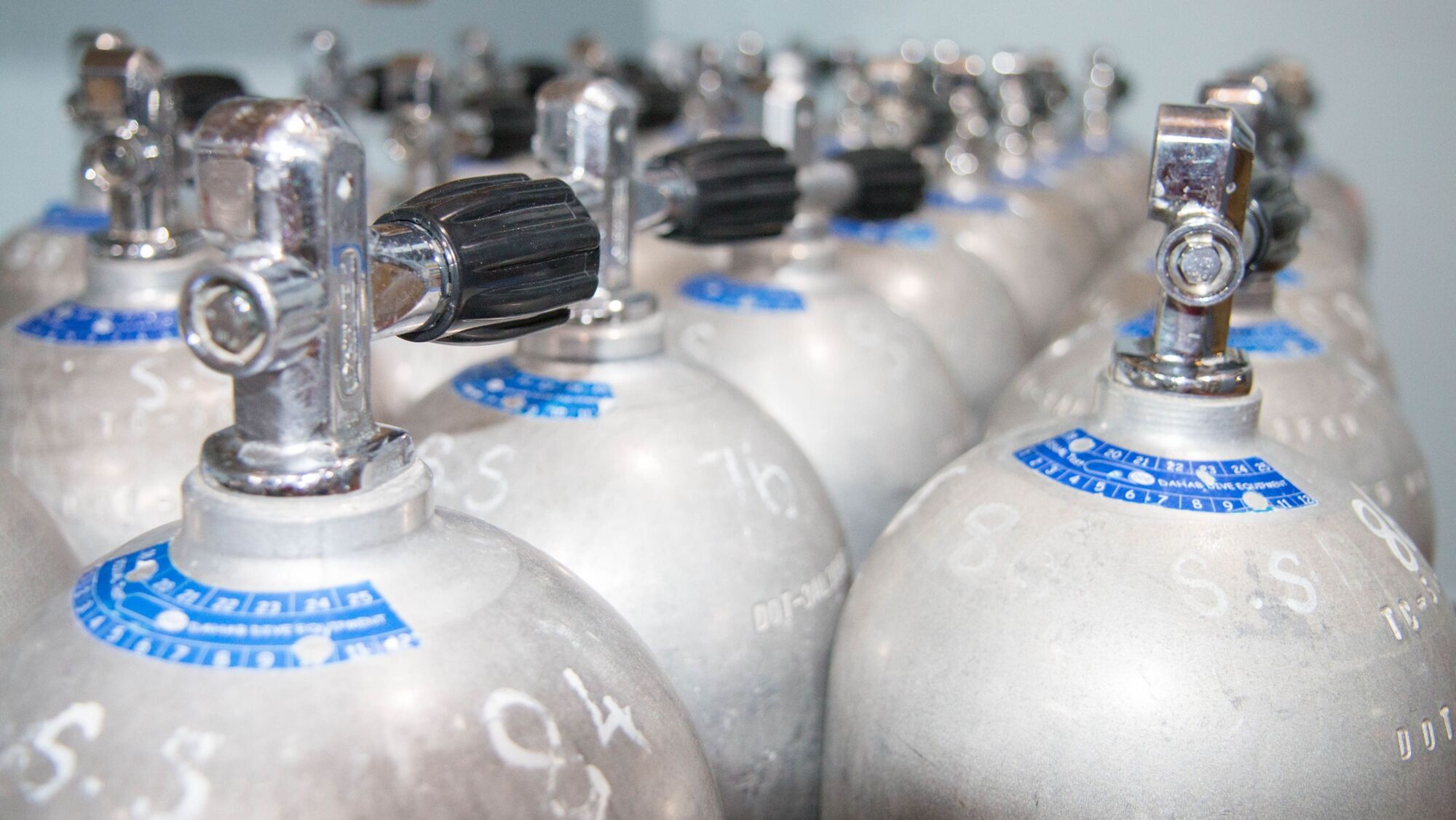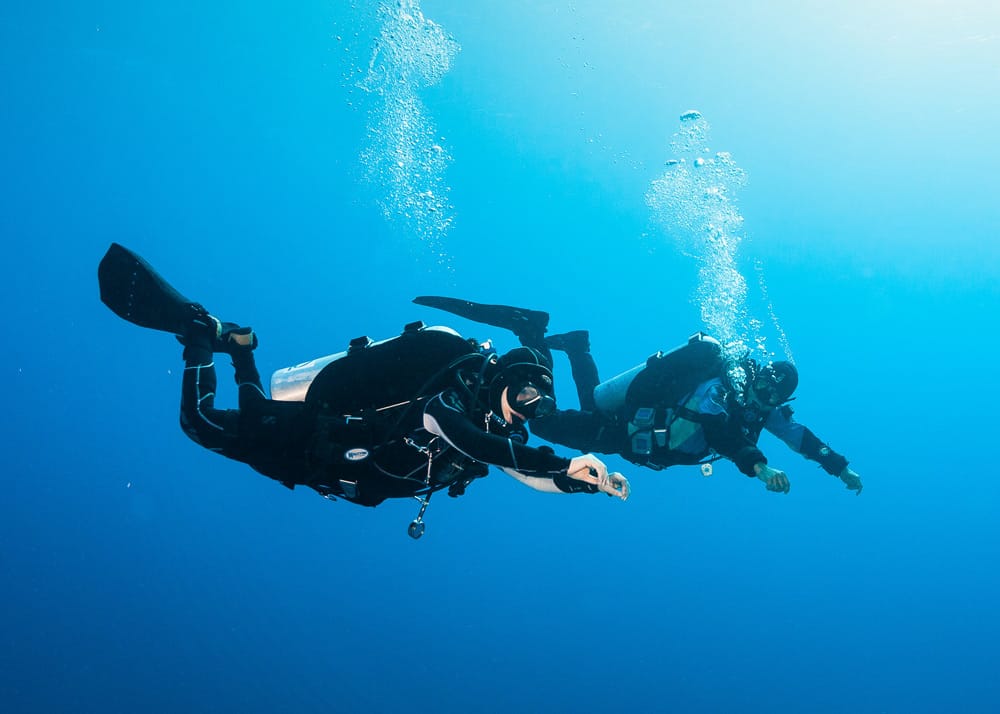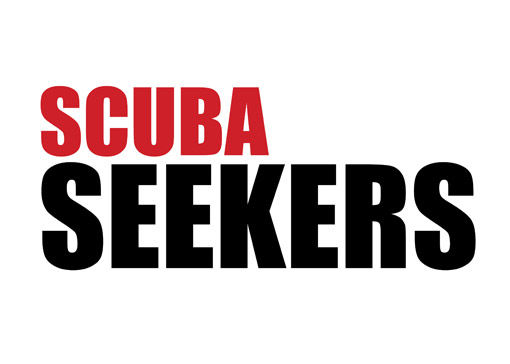
Congrats – you did it, added that first shiny certification card to your collection! Now begs the questions – what next?
It’s a question we hear all the time and while many will be quick to tell you “the Advanced Course, duh!”, we’re here to say slow your (back)roll and consider these alternative options instead.
Dive!
That’s it. Just dive.
I know, I know – it sounds crazy. But hear us out.
You’ve just spent how many days working on skill after skill? Filling your mask, clearing your mask. Recovering your regulator, clearing your regulator. You’ve done the work, you’ve put in the hours – both physically and mentally – so take that certificate and go have fun with it.
You’ve quite literally earned it!
Dahab is rich in spectacular dive sites suitable for Open Water level divers. Underrated sites such as Golden Blocks, Moray Garden, Canyon Gardens and the Islands all provide the perfect coral-filled backdrop as you practice and gain confidence in the water.
There is no substitute for experience so dive, dive, dive! As your comfort level increases and diving starts to feel like second-nature, then it’s time to start thinking about the next certification level.
 Learn How to Dive with Nitrox
Learn How to Dive with Nitrox
Hungry to expand your diving knowledge but not feeling quite ready for the Advanced Course yet? Consider taking the Enriched Air Nitrox (EANx) course – one of the most useful certifications in a diver’s repertoire.
With the Nitrox certification, divers are able to dive with a higher concentration (up to 40%) of oxygen than standard air tanks.
Why is this beneficial for divers? It means:
- Longer bottom times. Diving with Nitrox means you absorb less nitrogen which allows you to stay underwater longer as it lengthens your no-decompression limits.
- Longer repetitive dive times. If undertaking multiple dives in a day, you’ll have a longer allowable bottom time on subsequent dives than if you were using air.
- Shorter surface intervals. Breathing less nitrogen shortens the required “off-gas” time needed between dives which means you can get back in the water quicker.
- Less fatigue. This last point is up for debate but many divers swear diving on nitrox makes them less tired than diving on air.
The Nitrox course is normally conducted as a dry course and with the eLearning completed ahead of time, divers can take the course alongside their guided dives meaning no need to sacrifice their time underwater.
 Further Enhance Your Foundational Skills
Further Enhance Your Foundational Skills
The key to getting the most out of your dives (and fully enjoying them) is having the proper foundations – think buoyancy control, finning techniques, situational awareness, etc – in place before advancing to deeper diving.
While you learn the basics in your Open Water course, students are often left with a margin for improvement when it comes to refining their foundational skills. It’s better to master these at the start of your diving journey rather than have to unlearn bad habits later on.
What is the best way to go about this? We’ve outlined some options below:
- Personal Training Days: many Instructors and dive centers (including Scuba Seekers) offer one-on-one workshops customized to a particular student’s training needs.
- Peak Performance Buoyancy Course: this course is often a great start for those who just completed their Open Water and are looking for more guidance and practice on the key goal of mastering one’s buoyancy.
- GUE Fundamentals Course: if you are really serious about developing the right foundational platform and have lofty diving goals, consider this vigorous – but extremely rewarding course.
We hope the above helps give you some ideas on where to go next in your diving journey.
